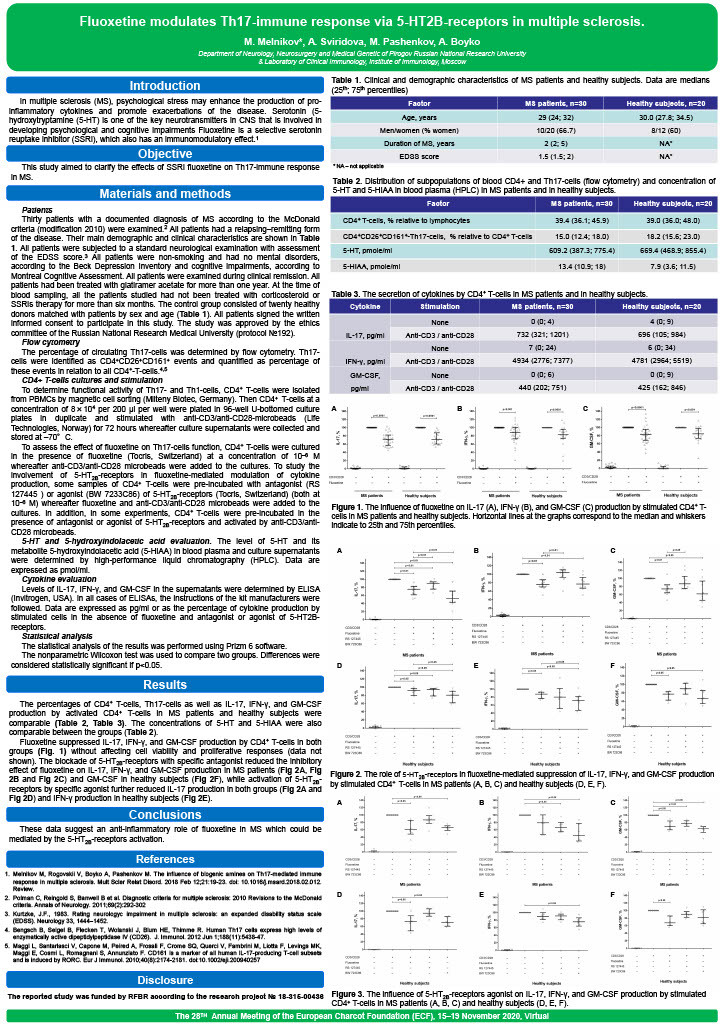Fluoxetine modulates Th17-immune response via 5-HT2B-receptors in multiple sclerosis
Abstract
Introduction:
Depression may influence on multiple sclerosis (MS) pathogenesis by increasing pro-inflammatory cytokine production. Fluoxetine is a selective serotonin reuptake inhibitor, which also has an immunomodulatory effect. This study aimed to clarify the effect of fluoxetine on Th17-cells, which plays a crucial role in MS pathogenesis.
Methods:
Thirty patients with relapsing-remitting MS during clinical remission and twenty healthy controls were examined. The level of serotonin (5-HT) and its metabolite 5-hydroxyindolacetic acid (5-HIAA) in blood plasma and culture supernatants were measured by high-performance liquid chromatography. The percentage of blood Th17-cells was determined by flow cytometry (CD4+CD26+CD161+). To assess the effect of fluoxetine on Th17-cells, purify CD4+-T-cells were cultured in the presence of fluoxetine (10–6 M) and stimulated with anti-CD3/anti-CD28-antibodies. The levels of IL-17, IFN-γ, and GM-CSF in culture supernatants were assessed by ELISA. To study the involvement of 5-HT receptors in fluoxetine-mediated immunomodulation, some samples of CD4+-T-cells were pre-incubated with antagonist or agonist of 5-HT2B-receptors, whereafter fluoxetine and anti-CD3/anti-CD28-antibodies were added to the cultures. In some experiments, CD4+-T-cells were pre-incubated with antagonist or agonist of 5-HT2B-receptors and activated by anti-CD3/anti-CD28-antibodies.
Results:
The concentrations of 5-HT and 5-HIAA in plasma were not different between the groups. The percentages of Th17-cells, as well as the production of cytokines, were also comparable. Fluoxetine suppressed cytokine production in both groups (p<0.0001) without affecting on cell viability and proliferative response. Blockade of 5-HT2B-receptors decreased the inhibitory effect of fluoxetine on IL-17 and IFN-γ production in MS patients (p<0.05). Activation of 5-HT2B-receptors enhanced the inhibitory effect of fluoxetine on IL-17 production in MS patients (p<0.05) and IFN-γ in healthy subjects (p<0.05). The activation of 5-HT2B-receptors suppressed cytokine production in both groups (p<0.05).
Conclusion:
These data suggest an anti-inflammatory role for fluoxetine in MS, which could be mediated by the activation of 5-HT2B-receptors.

